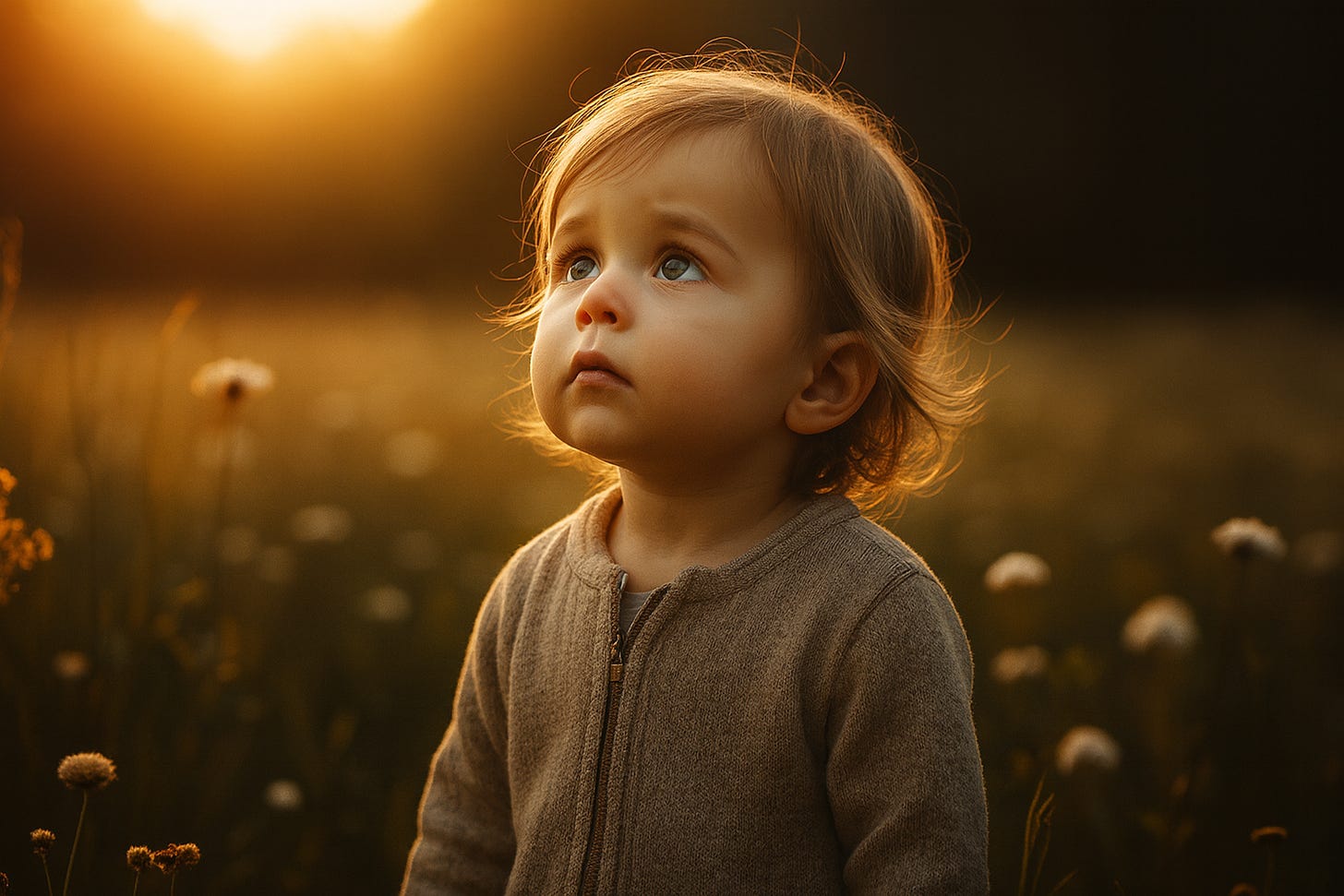Random World: Why Life Does—or Doesn’t—Matter
How the Longing for Meaning Points to the Divine
Only with my closest friends do I have the opportunity to discuss subjects that might seem strange to others, but that are deeply interesting to me. One of these conversations circles around a question that has followed me since I was a teenager:
Were we created—fashioned by some Intelligence, some Divine energy—or are we simply the result of randomness, a cosmic accident that began with the collision of invisible particles?
In other words, are we intended, or merely incidental?
If it’s the latter—if life arose from nothing more than a series of chance reactions, atoms bumping into atoms, then on what foundation can we speak of value, or worth, or sanctity? We can certainly agree, through consensus, that some things are good and others evil. But consensus is a fragile god. It can be revised, revoked, or corrupted. What gives any moral claim weight beyond our temporary preference? And further, do we even need a moral claim, or are our feelings enough—even if we know our feelings are nothing more than electrical impulses?
As a songwriter, I tend to think in metaphor rather than syllogism. It’s my way of approaching questions that logic alone can’t answer—love, beauty, fear, the need for meaning.
Once, talking with a friend, I asked him to imagine that we are nothing more than the result of random evolution: atoms to cells, cells to organisms, organisms to self-aware beings. I asked him, if so, what makes murder wrong?
He said, “It’s just wrong. It’s terrible.”
Of course it’s terrible. But why?
He answered that a society where murder is permitted can’t function.
But then I asked: why must society function? Entropy is the natural order; shouldn’t societal chaos be natural as well? What if destruction is as valid a mode of existence as creation?
He said, “Because that would cause pain and suffering.”
And of course, I had to ask—why is pain bad? If we are just self-organizing chemical matter, what moral meaning can “bad” have? Yes, pain is painful—but why is the infliction of pain bad?
“If everything we call ‘evil’ or ‘good’ is merely a human convention, then even atrocity becomes possible when consensus is unmoored from any higher foundation. Consider how Nazi propaganda openly declared that Jews were ‘the vermin of the human race,’ offering genocide a moral scaffolding. Or how the Hamas Charter states: ‘The Day of Judgment will not come about until Moslems fight Jews and kill them.’ When a society decides that the killing of certain people serves a greater good, what—other than an appeal to something beyond the opinions of other equally intelligent human beings—says they are wrong?
If morality is invented, it can, as we’ve seen throughout history and in our own times, also be un-invented.
The Problem of Pain
Image: youmotorcycle.com
Pain, most of us can agree, is to be avoided. We’ve built our lives around reducing it—through medicine, therapy, art, and distraction. But if life itself is accidental, why not avoid pain altogether, permanently? Is it really better to live than not to live?
If the elimination of suffering is the ultimate goal, the logic points to a dark conclusion: the best way to end suffering is to end life.
Please note: I categorically do not advocate this. But if the sanctity of life is merely a human construct, then suicide—or even mass extinction—could be seen as the rational fulfillment of our desire to end pain.
Canada’s increasingly permissive euthanasia laws make a kind of cold sense in this framework. Depressed people ask, “Why live?” And the question is fully understandable if they’ve subscribed to what I call the Random World ideology. Without a Creator, “sanctity” has no real standing. It is simply a word we use as a costume to cover what is otherwise hollow. I’m not saying that the people who hold such beliefs are hollow—they are not. I’m saying that the society which informed them, and which informed me, carries within it a yawning emptiness.
The Divine Necessity
And yet, something in us rebels. We feel that life matters. We know it instinctively. We feel awe at a child’s birth, sorrow at a death, and reverence before beauty. These are not logical reactions. One could argue that such feelings are outgrowths of our primitive nature, our instinct to survive. I believe they are something deeper—responses to a voice woven into the fabric of being that whispers: Life is sacred. When we cross into wanton murder, we enter the realm of evil.
I’ve also come to believe that our longing for meaning is itself evidence of a Source beyond us—a trace of the Creative Force, what some would call God, that made us capable of the question.
Without that Source, nothing is truly good or evil, beautiful or ugly, right or wrong. There is only motion: atoms rearranging themselves, electric signals arcing through a brain—once reptilian, now complex, but still, merely a more advanced mechanism.
The Human Distinction
AI may one day simulate our intelligence, even our empathy, but it will not yearn. It will not ask why. It will not weep at great loss or exult with great joy.
Perhaps that’s what separates us—not only from machines, but from mere matter.
Our yearning—irrational, persistent, impossible to extinguish—is the signature of something divine within us.
I spent my early years learning the Random World ideology. I have spent my middle years unlearning it. I will spend my remaining years, gratefully, exploring what lies beyond it.






Thoughtful writing, as always. Two points for discussion:
1) I think most--even the most atheistic--would agree that the purpose of life is not only to avoid pain but to experience joy, which is why we as a species don't lightly make the decision to commit suicide. And I suspect an inability to feel joy is the primary reason people do commit suicide, rather than to avoid pain. Is this not why so few committed suicide in concentration camps, but so many survivors of the camps did commit suicide?
2) If murder is wrong because God created us, isn't it also wrong to kill animals, as God would also have created them (and it is certainly not necessary for our survival)? What about insects, also presumably created by God? Perhaps one can find a biblical excuse for the killing of animals or insects, but the bible was written by men, not God. Were those men divinely inspired? What about Joseph Smith and L. Ron Hubbard--must we also follow their dictates? People before and after Moses have had various religious beliefs; what make ours "right" and theirs "wrong"? It all feels pretty arbitrary to me (and subject to various degrees of potential mental illness in some so-called prophets). (But I envy the believers the comfort belief brings.)
If we are here by accident, it's still a glorious miracle. We are the universe aware of its own unfathomable possibility. Life is the magic fire that changed inert, insensate matter into beings aware of existence, with an ability to have experiences and find purpose.. None of this is to be wasted or diminished.